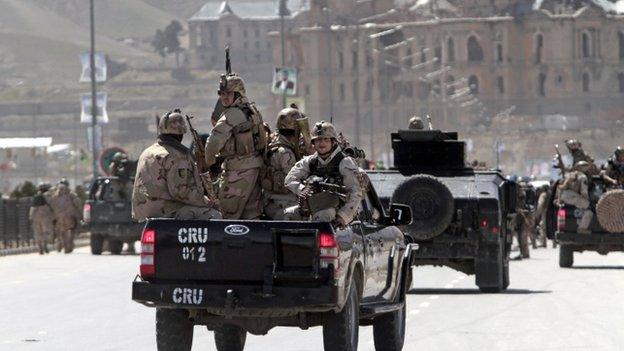Afghan notebook: A voice silenced
- Published
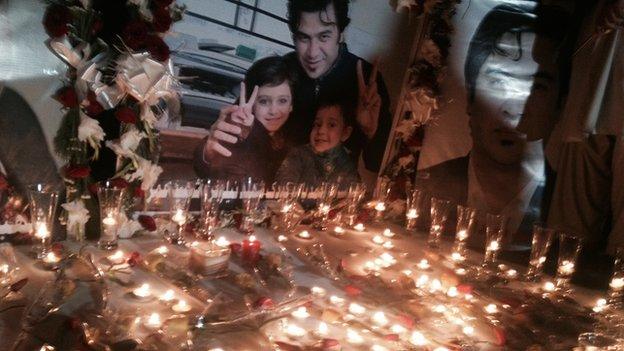
Journalists remember Sardar Ahmad and his family at a candlelight vigil in Kabul
Journalists in Afghanistan have held a candlelight vigil in memory of Sardar Ahmad, the senior reporter for Agence France-Presse, who was killed in a Taliban attack on 20 March.
An experienced and popular journalist, Mr Ahmad was gunned down along with his wife and two of his young children at the Serena Hotel in Kabul. The BBC's Harun Najafizada remembers a colleague and friend.
I first met Sardar Ahmad in 2003 in the early days of the new Afghanistan.
It was a time of hope. The Taliban had gone, a new government was in place and our country seemed to be at the centre of the world's attention.
We had both just been recruited as reporters. Sardar was covering news coming out of Bagram, the largest US base in the country, while I was posted to Mazar-e Sharif in the north.
We often met in Kabul to chat about our stories and Afghan politics or just to listen to Hindi music that we both loved.
As the Taliban made a comeback and the security situation began to deteriorate we were both posted back to Kabul.
Sardar was a bright, energetic and committed journalist with eyes and ears always open.
With his charm and language skills, he built up an impressive network of contacts within the Afghan government, among international players, foreign journalists, local society and even within the insurgent networks.
He was key in covering Afghanistan for a world audience, always aware of the ups and downs of Afghan politics.
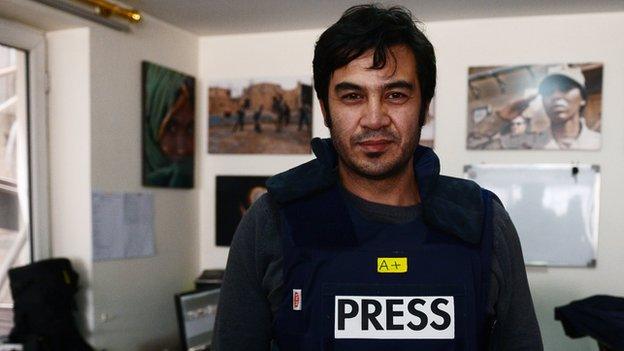
Sardar Ahmad in the AFP office in Kabul hours before he, his wife and two of his children were killed in the Serena hotel attack
And he was always full of fresh ideas - from the opening of a new bowling alley in Kabul, to police female commandos and most recently the fate of a pet lion he'd discovered being kept in a house in Kabul.
I last saw him in at an election rally here in Kabul, striding through the crowd with a camera on his shoulder. He smiled and waved to me from the other side of the Ghazi Stadium.
I thought to myself: 'I'll let him get on with his job and later in the week I'll go over to his place and we can go bowling.'
But a few days later, four teenage gunmen with pistols hidden in their socks penetrated several layers of security to attack the Serena Hotel in the centre of Kabul.
They shot my friend, his wife Humaira, his seven-year-old daughter Nilofar and his five-year-old son Omar from close range while they were having dinner to celebrate Nowruz, our New Year's eve.
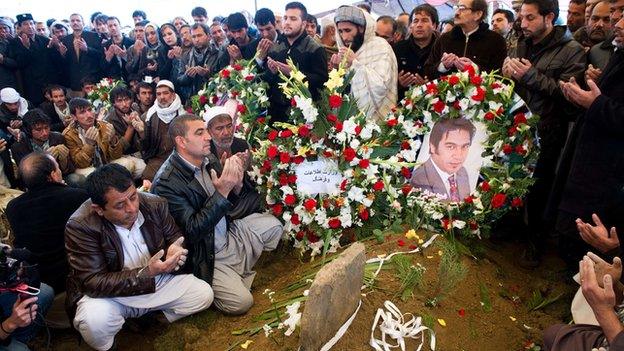
Friends and family pray at Sardar's grave during his funeral in Kabul on 23 March
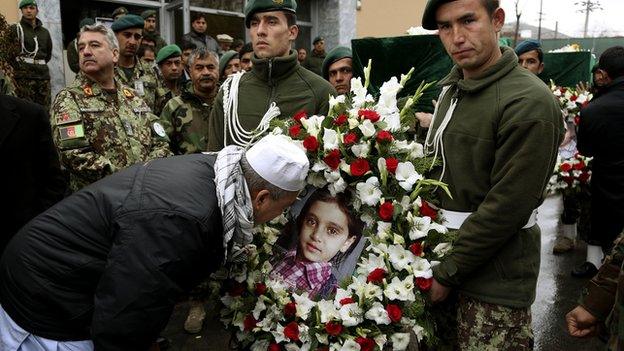
Shah Mohammad, Sardar's older brother bends down to kiss the picture of his niece Nilofar during the funeral ceremony in Kabul
They also shot his younger son Abozar at least three times, but he survived and is now recovering to keep Sardar's name alive.
As details of the attack emerged later, Afghan officials said they did not believe Sardar was the target. He was just in the wrong place at the wrong time.
We began to worry when the usually regular tweets from Pressistan, the local news agency he founded, suddenly stopped.
We all wondered why Sardar was silent when such a big news story was happening in our city.
The next morning we found out that he had been silenced forever.
Like many other Afghan journalists, Sardar had many opportunities to leave the country and seek a better life abroad.
But he wanted to stay and be part of the transition process. He hoped that one day Afghanistan would leave violence and chaos behind and he looked forward to reporting on a more normal life.
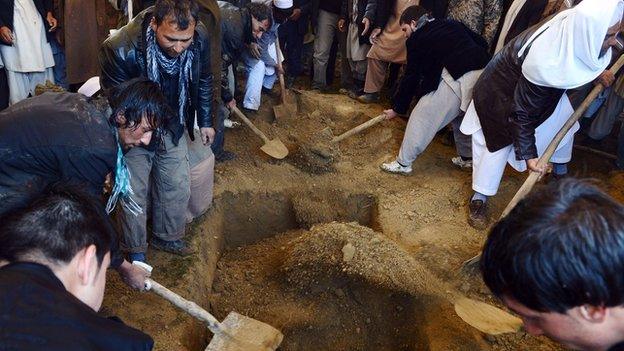
Friends and family cover the grave of one of Sardar's children with soil during the funeral. Hundreds of well-wishers turned out in the pouring rain
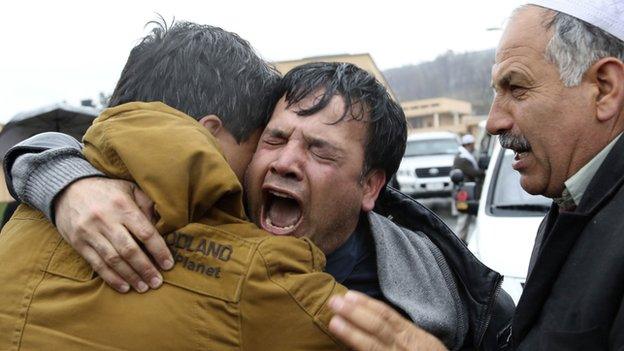
Sardar's brother, Bashir Ahmad cries during the funeral ceremony in Kabul
When I first heard the news about his death I hoped against hope that it wasn't true. I felt shocked, angry and frustrated.
For many of us journalists in Kabul, Sardar's death has suddenly brought home the grim reality of the relentless violence in our country.
It's given a human face to civilian casualties that we have been reporting on for more than a decade.
It's one tragedy against the background of so many all across Afghanistan. But it's left everyone - not just the media community, feeling deeply shocked.
We will all miss Sardar very much.
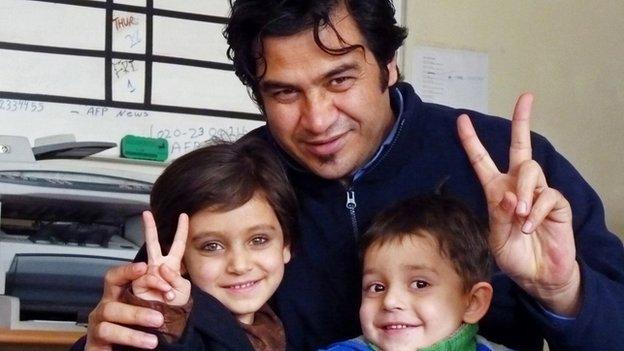
Sardar Ahmad poses for a photograph with his daughter Nilofar and son Omar at the AFP office in Kabul in 2012
- Published21 March 2014
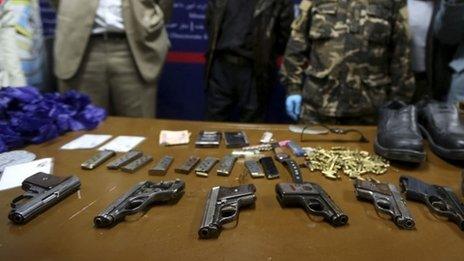
- Published12 August 2022
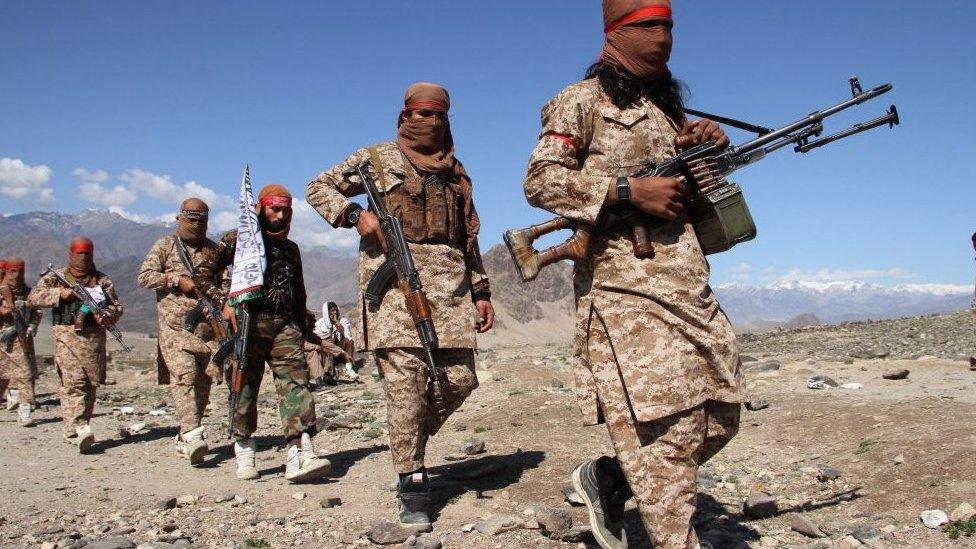
- Published18 March 2014
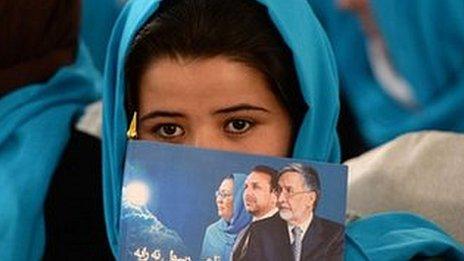
- Published25 March 2014
